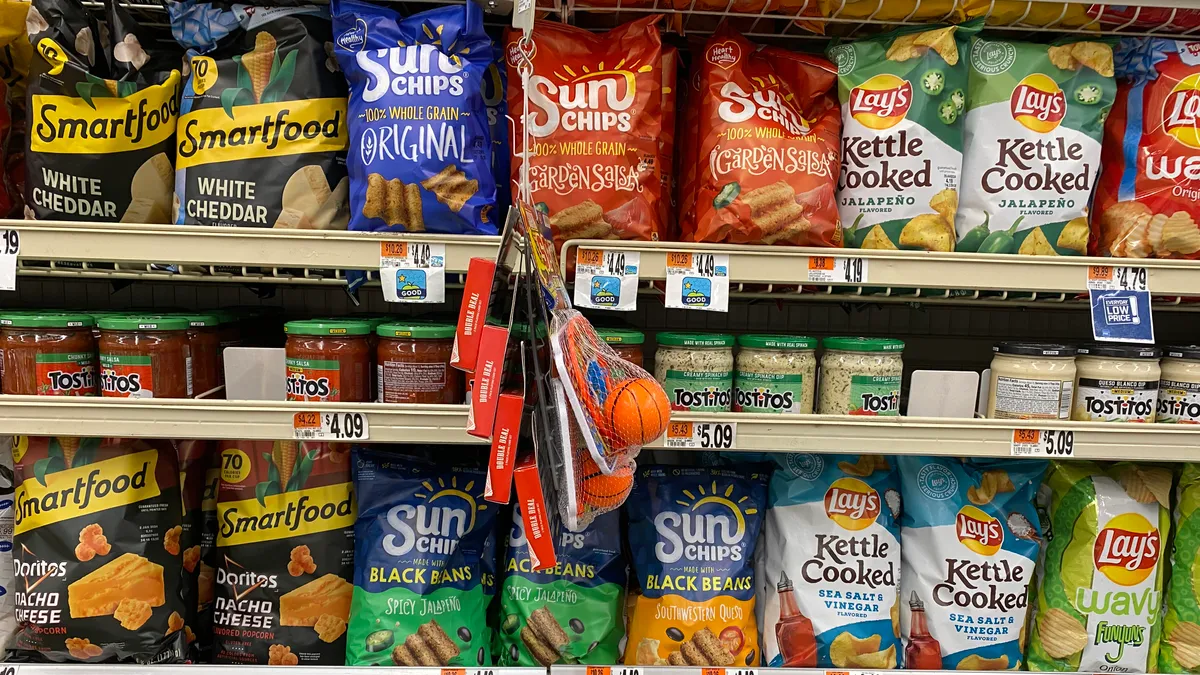Dive Brief:
- After a relatively quiet period of M&A in food and beverages compared to prior years, activity appears to be gaining momentum due to changing consumer preferences, lower interest rates and efforts by executives to streamline their portfolios, according to CoBank.
- This year has averaged fewer than 500 deals per quarter, a nearly 40% decline from the 2021 to 2023 period, the cooperative bank noted. But conditions that previously chilled dealmaking appear to be thawing, creating opportunity in a few areas.
- Executives have told analysts they remain on the lookout for companies to buy, but most likely will purchase a smaller firm if they do make an acquisition. “It seems like our focus right now, and what we see in the marketplace really, is probably more availability of smaller sized assets that we could bolt-on that would enhance our growth,” Jeffrey Harmening, General Mills’ CEO, told analysts in September.
Dive Insight:
Billy Roberts, a senior food and beverage analyst with CoBank who authored the report, said consumer interest in better-for-you snacking will likely increase M&A activity in this area. Plant-based meat alternatives also are ripe for consolidation because they contain several smaller brands, and the sector as a whole has been posting slower growth lately.
In addition, smaller companies could merge with each other to build scale, or find themselves as the target of a larger CPG company looking for a strategic deal.
Roberts added that manufacturers are increasingly aligning their SKUs around the 80/20 principle (80% of revenues tend to come from one-fifth of their brands) and devoting attention to that more profitable 20%. This has prompted some businesses to streamline their portfolios by selling products or brands that don't align with this strategy or that cause complexity in the supply chain.
“These acquisitions not only reduce some of the pressures on brands’ R&D departments to innovate but these generally smaller-sized deals are also more financially palatable,” Roberts wrote. “In fact, several recent acquisitions have been of a smaller variety.”
This year, some larger deals have taken place or been announced.
General Mills announced plans to sell its North American yogurt business to French companies Lactalis and Sodiaal for $2.1 billion as the cereal giant moves away from dairy. PepsiCo said it would snap up Mexican-American food maker Siete Foods for $1.2 billion. And candy and gum giant Mars agreed to purchase snacks manufacturer Kellanova for $35.9 billion, the largest food and beverage deal since the $45 billion merger of Kraft Heinz in 2015.
But much of the activity has been smaller. Campbell Soup sold Pop Secret popcorn for an undisclosed amount, and Danone offered to buy kefir maker Lifeway Foods for $283 million. Dippin’ Dots maker J&J Snack Foods acquired the Thinsters cookie brand from organic and natural products maker Hain Celestial, and Conagra Brands purchased the maker of Fatty Smoked Meat Sticks.












